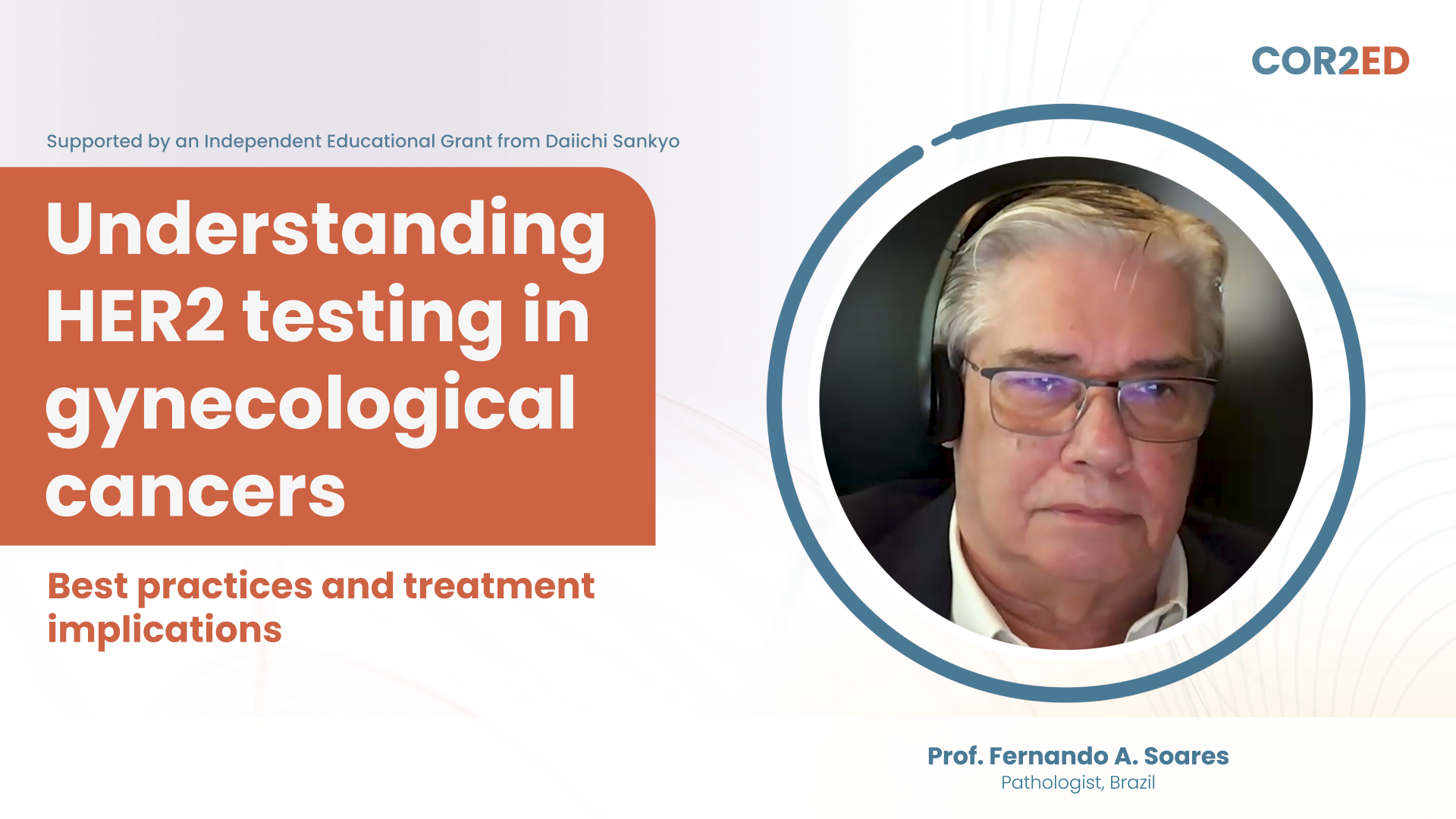Hello, I’m Dr Fabio Schutz, I’m a Medical Oncologist at Beneficência Portuguesa hospital in São Paulo, Brazil.
I’m here with you today to discuss some aspects about the treatment selection in metastatic castration-sensitive prostate cancer.
CHAARTED Study
In 2014 the CHAARTED study has shown that ADT plus chemotherapy with docetaxel had a significant improvement in the overall survival of patients with metastatic castration-sensitive prostate cancer, and since then, it was suggested to give chemotherapy together with ADT for patients.
However, in the latest ASCO meeting there was an interesting publication, using the SEER and Optum databases presented by Dr Agarwal, that showed that since 2014 after the CHAARTED presentation, only 4% of patients had received docetaxel chemotherapy as part of their treatment and among those, only 9% of patients actually received 6 or more cycles of chemotherapy in that scenario, showing, usually that docetaxel chemotherapy is not very used in the United States, even after the CHAARTED publication in the United States, and the reason for that, perhaps can be the advances that we had with other agents such as the new androgen receptor inhibitors.
Androgen Receptor Inhibitors (ARIs)
Since 2014 several other studies with these new generation ARIs, the androgen receptor inhibitors such as abiraterone, enzalutamide and apalutamide with the studies of LATITUDE, ENZAMET, ARCHES, STAMPEDE and TITAN. They all have shown a significant improvement in overall survival in the same scenario, in the metastatic castration-sensitive prostate cancer. All those studies including the CHAARTED study with docetaxel plus ADT, they have shown similar benefits in the overall survival with about 35% reduction in the risk of death overall, with hazard ratios ranging from 0.6 to 0.7 overall.
STAMPEDE Trial
Interestingly the STAMPEDE trial conducted in the United Kingdom, they had the opportunity to compare abiraterone to docetaxel and they observed that actually abiraterone was better than docetaxel specifically in those short-term endpoints, such as failure-free survival and progression-free survival, that are mostly dependent on the PSA progression.
However, for the long-term endpoints such as overall survival and prostate cancer survival which are actually the most important endpoints, abiraterone and docetaxel had similar benefit – there wasn’t any statistical significance difference between docetaxel and abiraterone.
However, when in that trial they evaluated the quality-of-life scores comparing docetaxel and abiraterone, they showed that abiraterone had better quality-of-life scores for patients, specifically in the beginning of the treatment where patients usually receive docetaxel and after one year of follow-up the quality-of-life scores were similar between docetaxel and abiraterone.
So, in conclusion we can say that from an overall survival perspective there wasn’t any significant difference between docetaxel and abiraterone and perhaps, probably, compared to other androgen receptor inhibitors with indirect comparisons, however in the quality-of-life endpoints usually abiraterone was better tolerated than docetaxel which is kind of obvious because it’s not a chemotherapy.
TITAN and ENZAMET Trials
There is also some evidence, specifically from the TITAN and ENZAMET trials showing that ADT in combination with ARIs and docetaxel, so I’m meaning giving three therapies ADT plus ARIs plus docetaxel, did not show any benefit over ADT plus ARI alone. Specifically in the TITAN study was with apalutamide, and the ENZAMET trial was with enzalutamide. Therefore, so far we should not consider giving concomitant administration of apalutamide, enzalutamide or abiraterone with docetaxel.
ARASENS Trial
However, there is an important study ongoing that is evaluating exactly this situation: it’s the ARASENS study and they are comparing, ADT plus docetaxel versus ADT plus docetaxel plus darolutamide which is another important ARI that is being used. It is already approved nowadays for the non-metastatic castration-resistant prostate cancer in another scenario and they are evaluating darolutamide in the castration-sensitive scenario in this trial, the ARASENS study.
Thanks for watching on behalf of GU CONNECT.




 Downloadable
Downloadable  20 MIN
20 MIN
 Feb 2026
Feb 2026 






